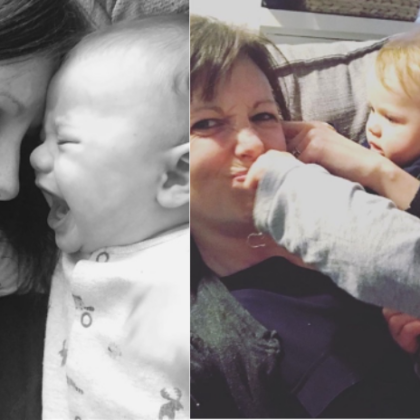‘I’m unlikeable, boring, weird, foolish, inferior, inadequate’: How To Address The Persistent Negative Self-evaluations That Are Central To Social Anxiety Disorder With Cognitive Therapy
The December BABCP Article of the Month is from the Cognitive Behaviour Therapist (tCBT) and is entitled “‘I’m unlikeable, boring, weird, foolish, inferior, inadequate’: how to address the persistent negative self-evaluations that are central to social anxiety disorder with cognitive therapy” by Emma Warnock-Parkes, Jennifer Wild, Graham Thew, Alice Kerr, Nick Grey and David M. Clark
‘I’m unlikeable, boring, weird, foolish, inferior, inadequate’: How do we address persistent negative self-evaluations when treating SAD with cognitive therapy? This is the question we answer in our recent paper.
If you get inside the head of somebody with Social Anxiety Disorder (SAD) it is clear why many patients struggle with a persistent negative evaluation of themselves, seeing themselves as ‘boring’, ‘weird’, ‘unlikeable’, ‘inferior’ or ‘inadequate’. SAD is often chronic in the absence of treatment. Most people we treat have suffered for 15-20 years before seeking help. That is a lifetime of living inside your own head, critically evaluating everything you say and do and hiding your true self under a range of safety behaviours. If you have never experienced the negative effects of self-focused attention and safety behaviours, then the next time you speak to somebody try for a few minutes to focus totally on yourself. Constantly ask yourself ‘Am I boring?’ ‘Am I unlikeable?’, keep quiet, don’t share much of yourself, only say things you think are interesting, avoid eye contact. Those few minutes will likely feel uncomfortable. It will be hard to connect with the other person. You may come away feeling rather boring and unlikeable. Now imagine every social interaction across your lifetime has gone this way. How do you think you would view yourself as a person?
Persistent negative self-evaluations were originally termed ‘unconditional beliefs about the self’ because they can be held both during and outside of social situations. They are the conclusions sufferers of SAD make about themselves based on prior social experiences. Our team has written this paper as we have observed that the presence of these persistent negative self-evaluations can sometimes send therapists off course, digressing from the core interventions of cognitive therapy for SAD (CT-SAD). Patients may instead be offered treatment for ‘low self-esteem’, or therapists might delay addressing these beliefs until late in therapy. However, persistent negative self-evaluations are a central feature of SAD in the cognitive model (Clark and Wells, 1995). These beliefs are maintained by the same processes that other social cognitions are, such as thoughts about showing signs of anxiety (e.g. ‘I’m shaking’, ‘I’m blushing’ etc). They can be addressed using all the core interventions of CT-SAD and over many years we have refined the ways in which we target them.
In our recent paper we hope to provide clarification about the central role of persistent negative self-evaluations in the cognitive model of SAD. We walk through how to put these beliefs on the table early in therapy, addressing them throughout treatment using a range of experiential techniques. We give examples of addressing these beliefs using a range of behavioural experiments, by generalizing patients’ learning and accumulating data that is hard to disconfirm, using other person, video, and photo feedback. We describe targeting these beliefs using surveys, Then vs Now discrimination training, imagery rescripting of socially traumatic memories, and more. We also give examples of how to address self-criticism if it interferes with these core interventions.
There are some truly rewarding moments in the life of a cognitive therapist. None more so that hearing somebody with SAD, who has held a persistently negative view of themselves, say “I’m acceptable, just as I am.” This is the core goal of CT-SAD. We hope therapists will find this paper useful in helping more patients discover that when they drop the safety behaviours they have been hiding behind, they are accepted for themselves. For there really is no greater gift you can give in therapy than that.
Author Biography:

Emma is a clinical psychologist and CBT therapist working at the Oxford Centre for Anxiety Disorders and Trauma. Emma works alongside David Clark, Anke Ehlers and team, developing cognitive therapy treatments for anxiety disorders.
From Richard Thwaites, the Editor-in-Chief of the Cognitive Behaviour Therapist: Why I chose this article: This update of the main model for working with social anxiety provides a clear explanation of how to work with persistent negative self-evaluations within the model without jumping to another model such as ‘low self-esteem’. It also provides detailed guidance on how to work with these in clinical practice. It is an important codification of the learning from the Oxford team over the last 30 years.






